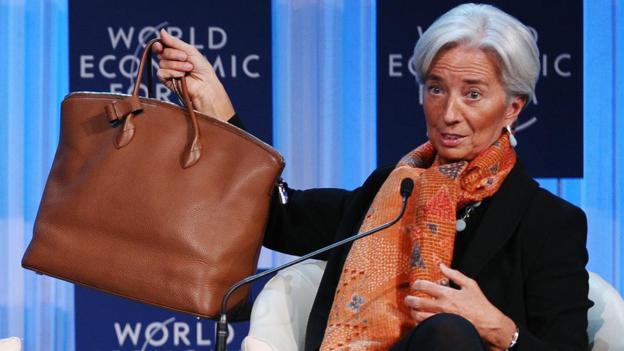Just like at the Federal Reserve, where voting vocal doves and hawks are split roughly across the middle, with half advocating no rate cuts, and the other half pushing for 2 or more cuts, so the ECB's uber-dovish Mario Draghi is now facing a potential mutiny on his hands ahead of next Thursday's critical monetary policy meeting when the ECB is expected to not only cut rates but potentially reactivate its bond purchasing program.
This was first revealed last week when fissures emerged within the ECB's Governing Council over the way forward as the heads of the German and Dutch central banks, as well as an ECB Executive Board member, said they see no compelling need to resume bond purchases, and the Austrian governor said he'll probably be critical of more easing. At the same time, the Spanish and Finnish governors said restarting QE must remain an option.
Today, another hawk emerged when Estonian central bank head Madis Muller joined the swelling ranks of officials skeptical over the need for a large stimulus package by saying a resumption of bond purchases now would be disproportionate to economic conditions.
The Estonian signaled he is comfortable with cutting interest rates when the Governing Council meets on Sept. 12, but said "the ECB can't be hostage to market expectations" which of course is ironic because over the past decade, both the Fed and the ECB have been held hostage to nothing but market expectations. And as a result, banks among which Goldman, Nomura, and ABN Amro expect a new round of quantitative easing to be unveiled next week, while investors are pricing in at least a 10 basis-point cut in the deposit rate.
In an interview with Bloomberg, Muller, 42, said the economic outlook has worsened but there is no recession and the euro area isn't facing the deflation risk that would normally be a trigger for asset purchases. His resistance to major monetary easing puts him in the same camp as his German colleague Jens Weidmann, Dutchman Klaas Knot, Austria's Robert Holzmann and Executive Board member Sabine Lautenschlaeger, who have argued the central bank should turn to bond-buying only as a last resort.
"I don't think we have a strong case for reactivating QE now," Muller, who joined the Governing Council in June, said in an interview in Tallinn on Tuesday. "In addition to being disproportionate in a situation where there is no deflation risk, in my opinion there is also a concern over ineffectiveness. It just might not be very productive."
Muller said there is still room to cut rates further below zero, at the same time warning that the ECB should be wary of easing the pain for banks.
As Bloomberg notes, the surprisingly vocal opposition to QE could spell trouble for President Draghi, who has already "forward guided" investors for some form of support for the economy as it's battered by trade tensions and Brexit, however while a rate cut is certainly expected, the lack of QE will certainly disappoint stock markets.
Then there are the logistical problems: bond purchases were capped at 2.6 trillion euros ($2.9 trillion) at the end of last year, and resuming them could require the ECB to raise self-imposed limits on how much it can buy. The rules are designed to prevent the central bank from breaching laws against financing governments (then again, the ECB has long ago breached all red lines meant to prevent the central bank from engaging in MMT, i.e., printing money to fund governments).
That said, the doves are certainly not mute, with Finnish central banker and legacy uber dove, Olli Rehn arguing recently that officials should deliver a significant stimulus package that overshoots market expectations. Vice President Luis de Guindos said investor bets should be treated with a "pinch of salt," and Spain's Pablo Hernandez de Cos said all options should be kept on the table.
That split between doves and hawks makes the position of Bank of France Governor Francois Villeroy de Galhau, monetary chief for the euro zone's second-largest economy, potentially critical for market expectations over what officials will deliver when they meet on Sept. 12. His silence, Bloomberg notes, has become conspicuous after a week which exposed divisions on the Governing Council over the way forward.
"Villeroy de Galhau might be able to influence the magnitude of the move." said Anatoli Annenkov, senior economist at Societe Generale in London. "If we have the known hawks, they can be outvoted. If there's more opposition, that might be a different thing."
The French governor has until Wednesday evening to make his view public, after which the Governing Council goes into its quiet period. Because of a rota system to smooth decision-making, he doesn't have a vote at the meeting itself. In practice though, his views will still carry weight and policy makers rarely resort to voting, aiming instead for consensus or unanimity.
Meanwhile, traders are pricing in 16 basis points of easing at next week's meeting. Some, such as RBC are looking for an immediate 20 basis-point cut in the -0.40% deposit rate with more later in the year. To others this is not enough, and banks including Goldman, Nomura, and ABN Amro expect the announcement of a new round of QE.
However, with such vocal opposition to even more QE - easing which will be self-defeating as it cripples European banks and sends their stock prices to new all time lows, likely triggering the failure of such giants as Deutsche Bank and Commerzbank - it is unclear just how Draghi will negotiate with the mutineers. Then again, he won't have to worry too long: starting October 31, how the Eurozone will be destroyed - whether with hyperinflation fire and deflationary ice - will no longer be Draghi's decision, but instead the final destruction of the Eurozone will be delegated to arguably the most clueless person (see Argentina) in the room.

Commenti
Posta un commento